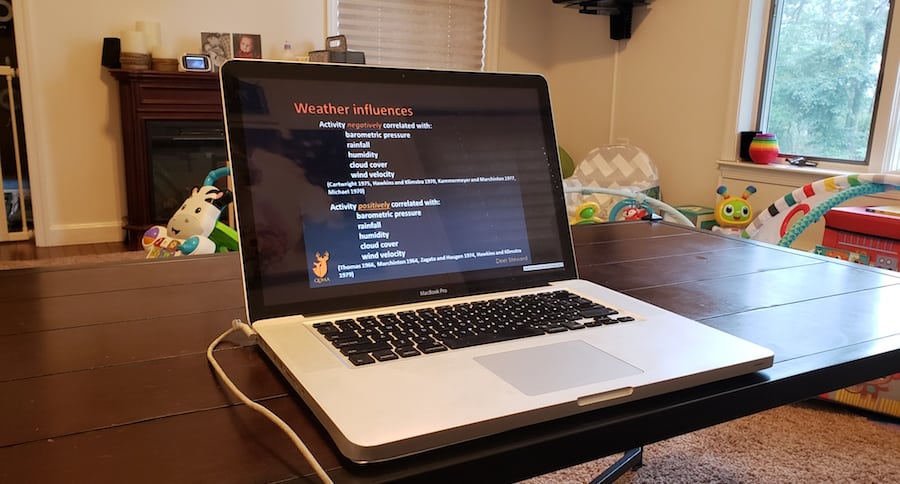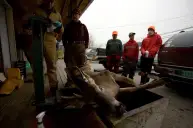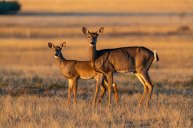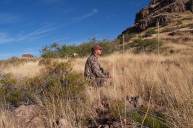The online Deer Steward class from Quality Deer Management Association is jam packed with more information than a deer hunter could learn in four lifetimes.
Online classes, at least for college, are a great way to educate yourself when you have an extremely busy lifestyle. Not only is it convenient, but you can take your time and go over the course as thoroughly as you would like.
After graduating from a community college with an associate's degree through a Fire Protection Program, I continued my education with online classes from the University of Maryland. It was an online bachelors degree in Fire Science, and stood as my first taste of online school.
So you could consider me familiar, and I definitely liked the benefits of online classes. When I first heard of the Online Deer Steward Class offered by the Quality Deer Management Association, or QDMA, through Clemson University, needless to say I was excited.
I'm kept awfully busy these days, what with writing, owning a business, being a career firefighter, spending time with my wife and one-year-old, and managing over 2,700 acres of hunting property. If I can find time to take (and get something out of) and online course, anyone can.
I signed up, paid the registration fee, and settled in for some good ol' 21st Century online learning. The process of the entire course has given me so much, that I couldn't help but fill you in on why you should consider taking it too.
Instructors
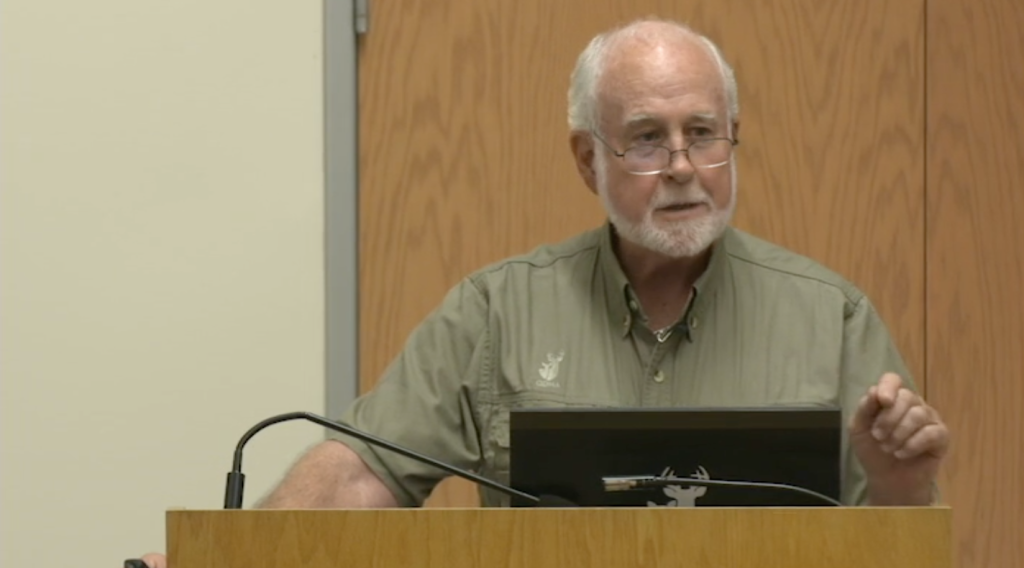
Founder of the QDMA Joe Hamilton
Like any course, I knew this one was only going to be as good as its instructors. Luckily, the QDMA is loaded with some of the most educated, helpful, and humble minds in the area of deer knowledge.
Contributors, who mainly appear in speaking segments throughout the course, are great to listen to, and a collective encyclopedia of the deer management practice. Some of the names you may recognize, and some you will never forget if you take the course.
- Kip Adams, Wildlife Biologist, QDMA's Director of Conservation
- Joe Hamilton, Wildlife Biologist, QDMA's Founder and Senior Advisor
- Dr. Craig Harper, Professor and Extension Wildlife Specialist, University of Tennessee
- Dr. Karl V. Miller, Professor, University of Georgia
- Brian Murphy, Wildlife Biologist, QDMA CEO
- Matt Ross, Wildlife Biologist and Forester, QDMA Assistant Director of Conservation
The amount of knowledge and experience these gentlemen have will make you wonder if they count deer to fall asleep instead of sheep. What's clear off the bat is that these instructors aren't providing theories, they are providing high quality information found through scientific experiments.
The Course
The whole course is broken into six different segments.
- History, Biology, and Ecology
- Herd Management
- Current Concerns
- Habitat Management
- Hunter Management
- Herd Monitoring
Inside each segment are video lectures, Powerpoint presentations, and supplemental readings. The video lectures are anywhere from 30 minutes to 90 minutes long, and they're all full of useful information. The speakers are actually instructing an in-person class, so you are getting the classroom experience while sitting on your couch or at your office desk.
As you continue through the course, you're required to take and pass quizzes in order to move forward. Each quiz poses great questions that relate back to what you learned during the segment.
For those who have test anxiety, you can take the quizzes as many times as you need to get it right. Bet your college courses never allowed that, did they?! Once you complete all of the segments, you have completed the Deer Steward I course.
What does it cost, and what do I get out of it?
https://www.instagram.com/p/Bnv-XHDHHB0/
"The Deer Steward course offers many secondary benefits," explains Matt Ross, QDMA Assistant Director of Conservation, "but the primary benefit is gaining knowledge on how to effectively and holistically manage land for deer. There is no other class like it available, even at the college or university level. So, for anyone interested in pursuing a career in deer management or for those just looking to learn how to better manage their own land, it delivers exactly that. Other side benefits include the Certification it comes with, continuing education credits towards professional licensing, networking opportunities with others in the outdoors industry and other hunters and land managers as well."
Whether or not you are a QDMA member, you will not spend over $200 for this course. A college course, through Clemson University, for under $2,000 is virtually unheard of.
Even considering the amount of magazines, books, and cable subscriptions you pay for to get outdoor info, this course could provide you with more than all of them combined. You've also got to consider that the gimmicky hunting products you spend money on surpass the investment you'll make on the class. Plus, you would have known they wouldn't work if you had taken this class in the first place.
The prices for this course are below.
- $200 Non-QDMA Members (includes a QDMA membership)
- $175 Regular QDMA Members
- $150 QDMA Life Members, Sponsor Members and Corporate Sponsors, Partners and Supporters
- FREE for Active Military in Combat Zones
Upon completion, you will be mailed a certificate and officially become a QDMA Deer Steward I graduate. This will stamp your dedication to growing yourself and your outdoor community into better deer and wildlife habitat.
Maybe it isn't an instant way to get yourself a job like a more traditional degree, but it's a worthwhile investment in your own abilities. Should an opportunity arise for you to offer the same kind of services to someone else, you could certainly use the Deer Steward certification as leverage, and maybe even negotiate some sort of compensation.
The recognition and certification mostly helps professionals by showing depth in credentials. It will help them gain a competitive edge and can really diversify their services.
For example, a forester who wants to start offering wildlife management services can quickly gain that knowledge and edge after completion of this course. They can also receive continuing education credits towards their forestry or wildlife license.
In some states you can't practice natural resource management without a license; if that's something you would be interested in doing, this may be the resume builder you need to get a leg up on competitive companies.
Likewise, you will be eligible for the in-person, Deer Steward II & III Classes. For more information on those courses, you can read up on the QDMA website.
Who should take the course?
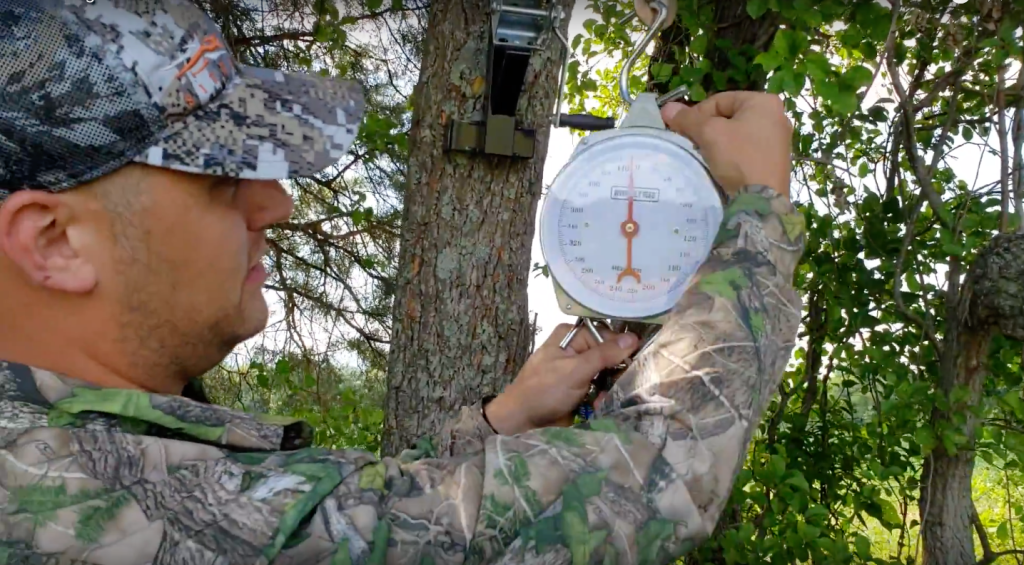
Dustin Prievo is a project manager for Patriot Natural Resources.
During my senior year in high school I had dreams of becoming an outfitter. I wanted to attend the Colorado Outfitter and Guide School and guide hunters throughout some of the toughest terrain and bring them success. My father sat me down and asked me if that was truly what I wanted to do. Was hunting was such a passion that I really wanted to find a way to make money doing it?
I think he was right, as I greatly enjoyed hunting and the camaraderie of it all, but I'm not sure it was going to be ideal for me. When everyone else is up playing cards at night, could I really stand being the one packing all of their gear for the next morning?
I eventually decided the hunting-as-a-living technique wasn't really perfect for my situation. But what I did not lose was my desire to learn about the practice of good hunting stewardship.
If you are questioning if you should take the course or not, the answer is yes. Whether you are a deer hunter looking to learn more about the species, or a property manager looking to manage deer and hunters, this course is for you.
Did you know that scrapes are made mostly by 2.5 year old bucks and older? You would if you have taken this course. Do you know what glands on a white-tailed deer do what and which ones still have scientists questioning their purpose? How about knowing what colors deer can and can't see?
Or how about the biggest shocker to most hunters: why is an open field of grass not really a good place to hang a treestand?
If you have ever asked yourself any of these questions, get them answered by taking the course. I like to consider myself very knowledgeable when it comes to whitetail deer. I'll study their movement 365 days a year. I have trail cameras, spotting scopes, binoculars and more data collection sheets and journals than most people in my area.
Even after all of my time spent collecting this information, studying, and hunting deer on both public and private land, I still was able to take so much from this course. Look to the Online Deer Steward Class from the QDMA, and you'll be doing yourself a big favor.
Like what you see here? You can read more articles by Dustin Prievo here. Follow him and his hunting team, Top Pin Outdoors, on Twitter, Facebook and Instagram.
NEXT: THESE 4 PROVEN HUNTING TACTICS ONLY REQUIRE PATIENCE
WATCH
